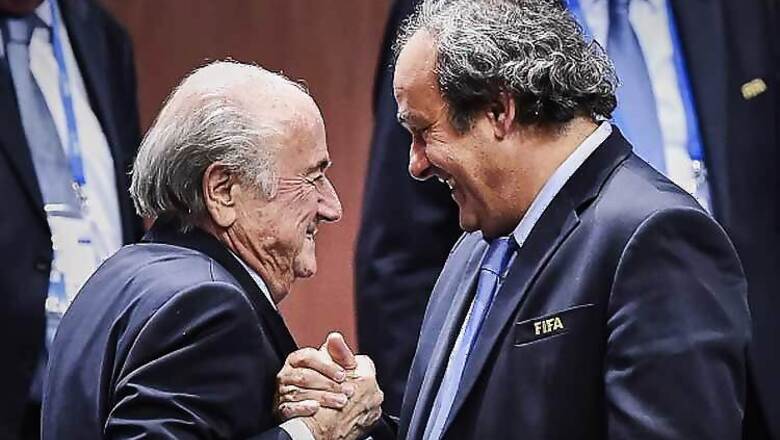
views
FIFA may be involved in a battle for its reputation in the wake of the corruption charges raised against some of its officials this week, but it could become embroiled in a civil war with UEFA over World Cup places next.
Newly-re-elected president Sepp Blatter, who got a bloody nose in his less than impressive 133-73 victory over Prince Ali bin Al Hussein of Jordan in Friday's vote is about to face the first major obstacle of his fifth term of office.
Blatter will hold the first executive committee meeting under his new mandate on Saturday and the only issue on the agenda is the allocation of World Cup slots for the 2018 and 2022 World Cup tournaments.
Blatter made it clear in his post-election speech that he "will not touch the World Cup" yet intends to increase the chances of a team from FIFA's smallest confederation, Oceania, having more than just a shot at a playoff to reach the finals.
If he commits to offering them a direct place, one of the other confederations face losing one and UEFA president Michel Platini has "drawn a red line" that it won't be taken from UEFA's allocation of the 13 places they had in Brazil last year.
Platini and almost all of UEFA's 53 members voted for Prince Ali in the presidential election and Platini told the media on Thursday that he had told Blatter the time had come for him to step down after 17 years in the post and not stand again.
Blatter refused and Platini said he could consider boycotting the World Cup, so the stage is set for more infighting between world soccer's governing body and its richest and most powerful confederation.
AGAINST BOYCOTTS
Wolfgang Niersbach, the president of the German FA who joined the executive on Friday, said he was against boycotts because they never achieve anything.
He added: "After the events of the past week there was a headwind that we felt but in the end it was not strong enough to bring about the change we wanted."
Niersbach will be in Berlin next week for the Champions League final between Barcelona and Juventus, which is now also the day when Platini will chair a meeting of senior UEFA executives to decide on their next move.
FA of Ireland president John Delaney told RTE News that he hoped Blatter would not complete his full four-year term.
"I think this is the beginning of the end of Sepp Blatter. I don't see him seeing his four years out, the momentum is too great.
"We have to see how best we can use the European muscle. We also need to go on a charm offensive with Africa and Asia," added.
"There will be a meeting of the UEFA family at the Champions League final to determine a strategy going forward."
Sweden's FA president Karl-Erik Nilsson added: "When over a third of the member countries actually wished for another FIFA president, it's a signal to Blatter that he must listen, and reflect even more carefully over the opposition that exists."
Jesper Moller, the president of the Danish FA (DBU) told reporters: "The election is a defeat for transparency and reforms in the global football organisation.
"Blatter is too involved in all the allegations of corruption that have taken up much of his time as president. But we must, of course, respect the democratic vote and continue to fight for renewal and openness in FIFA."
















Comments
0 comment